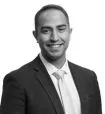- with readers working within the Metals & Mining and Telecomms industries
The UPCs' Paris Local Division had granted an ex-parte seizure order to C-KORE Systems Limited (Claimant) against Novawell (Defendant) on 14th November 2023. On 26th November 2024, following completion of the seizure and during an interim conference held by the judge-rapporteur, the court addressed the Defendant's request to hear witnesses as part of its defence. Specifically, the Defendant requested the court to reject an affidavit submitted by the Claimant's representative who was present during the seizure operation or have the court-appointed expert who had conducted the seizure operation and the bailiff responsible for overseeing the procedure testify regarding the evidence-gathering process. The Defendant argued that their testimonies were necessary to scrutinise the manner in which the seizure was conducted, evaluate the reliability of the affidavit submitted by the Claimant's representative and preserve the confidentiality of the Defendant's trade secrets.
The Paris LD denied the Defendant's request, emphasising that the expert report and the minutes prepared by the bailiff already provided detailed and impartial accounts of the seizure operations. The judge-rapporteur reasoned that the expert's credentials and the bailiff's documentation adhered to procedural requirements, ensuring the integrity and reliability of the evidence collected and were to be considered to hold "the highest probative value". Furthermore, it was noted that the statements made by the Claimant's representative in the affidavit in question did not fall within the scope of information that a lawyer might have had outside the operations to preserve evidence as referred to in the Code of Conduct for UPC representatives. Therefore, the information provided in the affidavit by the Claimant's representative was not subject to a confidentiality order previously issued by the court in relation to some of the seized evidence and pertained only to the operational aspects of the seizure, which were already on record. Consequently, the court deemed additional testimonies unnecessary and dismissed the Defendant's request.
This decision highlights the UPC's focus on procedural efficiency and reliance on established documentation over supplementary oral testimonies. It is clear that, whilst the UPC will hear witnesses under appropriate circumstances, a heavy focus remains on the written procedure and front-loaded conduct of UPC proceedings.
The content of this article is intended to provide a general guide to the subject matter. Specialist advice should be sought about your specific circumstances.



